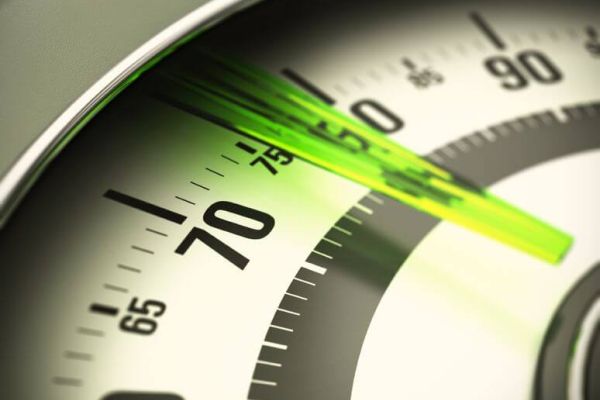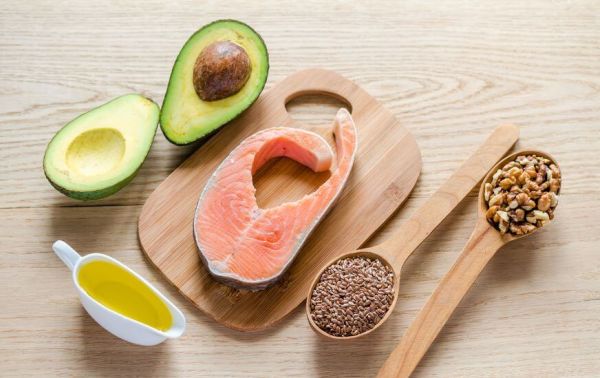The hysterical crusade against carbohydrates has reached a frantic pitch these days.
From the scientifically bankrupt theories of guys like Gary Taubes to the trendy low-carb diets like Paleo, Zone, Dukan, and so forth, the carbohydrate is now the victim of the same level of persecution that saturated fat endured for decades.
Well, we’ve come to learn that saturated fats aren’t the evil heart killers they were made out to be (excluding the processed form known as trans fat, which is known to increase risk of heart disease, among other issues).
If we’re to believe the leaders of the Carbohydrate Inquisition, this molecule will blow up our blood sugar levels, break our metabolism, force us to be fat, give us diabetes and many other diseases, and, well, just generally turn us into hungry, horrible people.
If we just ditch the diabolic carbohydrate, “experts” claim we will melt fat away and keep it off without having to count pesky calories, build an invincible immune system, live forever, and maybe even develop superpowers. And we’ll be part of the cool crowd to boot.
So, is this culture war actually justified? Does it have a basis in science?
Carbohydrates, Insulin Levels, and Weight Gain

Much of the carbohydrate controversy revolves around its relationship to the hormone insulin.
As the claims go, insulin “makes you fat,” and carbohydrate “spikes insulin,” thus, “carbohydrate makes you fat.” Sounds so simple, right? Well, yeah, the story is simple…but it’s false.
While yes, it’s true that insulin’s job is to pull glucose out of the blood and store excess as fat, it’s also responsible for driving amino acids into our muscles for protein synthesis and clearing dietary fats out of the blood as well (which are stored as body fat more efficiently than carbohydrate, I might add). On top of all that, insulin has a mild anti-catabolic effect (meaning it helps preserve your muscle).
And while it’s also true that eating carbohydrate increases insulin levels in your blood, many common sources of protein (such as eggs, cheese, beef, and fish) are comparable in their ability to do the same.
Some people claim that because your body generally produces more insulin when you eat carbohydrate, this leads to more fat storage. They’re wrong—research has shown that the amount of insulin your body produces in response to eating food (or insulin response, as it’s called) doesn’t affect the amount of fat stored.
So, in short, insulin is your friend, not a part of a conspiracy between your pancreas and fat cells to ruin your self-image.
That’s one strike against the “carbs make you fat” camp. Let’s now look directly at carbohydrate intake and fat loss.
Diet Composition and Real-World Weight Loss

Many low-carb gurus will claim that you can lose weight much quicker if you consume very few carbs every day. Some people even believe they can only lose weight if they cut their carbs to nil.
The problem with these advices and beliefs is they fly in the face of both basic physiology and scientific findings, and mask the most common weight loss roadblock: eating too much, and moving too little.
A simple review of scientific literature shows that diet composition has no effect on long-term weight loss.
For example, let’s first look at a study conducted by the University of Pennsylvania. Researchers assigned 63 obese adults to either a low-carbohydrate, high-protein, high fat diet (20 grams of carbohydrate per day, gradually increased until target weight was achieved), or a conventional diet of 60% of calories from carbohydrate, 25% from fat, and 15% from protein.
The result: the low-carbohydrate group lost more weight in the first 3 months, but the difference at 12 months wasn’t significant.
The 3-month result isn’t surprising, considering the fact that reducing carbohydrate intake decreases the amount of glycogen we store in our liver and muscles, which in turn decreases total body water retention. This, of course, causes a rapid drop in weight that has nothing to do with burning fat (and anyone that has reduced carbohydrate intake as a means of cutting calories for weight loss has experienced this).
Harvard University published a study in 2009 on the effects of diet composition and weight loss. They assigned 811 overweight adults to one of four diets, which were comprised of the following percentages of fat, protein, and carbs: 20, 15, and 65%; 40, 15, and 45%; and 40, 25, and 35%.
After 6 months of dieting, participants had lost an average of 6 kg. They began to regain weight after 12 months, and by 2 years, weight loss averaged out to 4 kg, with no meaningful differences between low-protein or high-protein, low-fat or high-fat, and low-carb or high-carb groups.
A study published by Arizona State University found that an 8-week high-carbohydrate, low-fat, low-protein diet was equally effective in terms of weight loss as a low-carbohydrate, low-fat, high-protein diet.
So, the conclusion we can derive is brutally simple and clear: as long as you keep yourself in a caloric deficit, you’ll lose weight regardless of the dietary protocol you follow.
The Exceptions to the Rule:
When Low-Carb—or High-Carb—Might Be Better

Despite the body of evidence presented above, practical experience in coaching hundreds of people has taught me that some people tend to just do better on high-carb or low-carb diets, and some do fine with either.
For instance, some people—like myself—do very well with high-carbohydrate diets. They can lose weight very easily, feel energized all day without any crashes, and are able to maintain considerable strength in the gym. Others don’t do well with a high-carb approach. Weight loss is slower than optimal, it makes them very hungry, which leads to over-eating, and it comes with frustrating energy highs and lows.
It goes the other way, too. Some people don’t do well with low-carb, high-fat diets (myself, again). They feel lethargic, mentally clouded, lose a ton of strength, and have trouble getting lean. Others thrive on it, having plenty of energy and a general sense of well-being.
What gives?
Well, while feeling like crap makes you more likely to over-eat or mess up your diet in other ways, and give less than 100% in your workouts, there’s more at work here.
Research has shown that some people’s bodies deal better with large amounts of dietary fat than others, responding with positive metabolic changes like an increase in resting energy expenditure and fat oxidation to maintain energy balance, and better appetite control.
Some people’s bodies respond negatively to high amounts of dietary fat, however, and are more likely to store it as body fat. Such research sheds some light on why some people respond so well or poorly to low-carb, high-fat diets. A ketogenic diet can be a disaster for some, and a godsend for others.
The above also relates to research on how insulin sensitivity and insulin response affect diet effectiveness. (Remember that insulin sensitivity refers to how responsive your cells are to insulin’s signals, and insulin response–or insulin secretion–refers to how much insulin is secreted into your blood in response to food eaten.)
Research has shown that weight loss efforts aren’t improved or impaired by insulin sensitivity or insulin resistance per se. When we move away from a balance of nutrients, however, and use high-carb, low-fat, or low-carb, high-fat diets in conjunction with different levels of insulin sensitivity and insulin response, things change.
For instance, a study conducted by the Tufts-New England Medical Center found that a low-glycemic load diet helped overweight adults with high insulin secretion lose more weight, but not overweight adults with low insulin secretion.
A study conducted by the University of Colorado demonstrated that obese women that were insulin sensitive lost significantly more weight on a high-carb, low-fat diet than a low-carb, high-fat diet (average weight loss of 13.5% vs. 6.8% of body weight, respectively); and those that were insulin resistant lost significantly more weight on a low-carb, high-fat diet than a high-carb, low-fat diet (average weight loss of 13.4% vs. 8.5% of body weight, respectively).
What we can take away from my anecdotal observations and these studies is if you have good insulin sensitivity and low insulin secretion (good insulin response), you’ll probably do better on a high-carb, low-fat diet.
On the other hand, if you have poor insulin sensitivity (insulin resistance) and high secretion (poor insulin response), you’ll probably do better on a low-carb, high-fat diet.
So, Which Approach, Then? High-Carb or Low-Carb?

Unfortunately it’s not easy to tell if you’re a “high-fat” or “low-fat” body type, but it’s fairly easy to take an educated guess regarding insulin resistance and sensitivity, and insulin response.
After eating a high-carb meal, signs of good insulin sensitivity and response are pumped muscles that feel “full,” mental alertness, stable energy levels (no crash), and satiety.
Signs of insulin resistance and poor insulin response are bloat, gassiness, mental fogginess and inability to focus, sleepiness, and hunger soon after eating.
Based on the above symptoms, you can decide which approach to try. And remember these are only general guidelines—in the end, actual weight loss is what matters most.
You should be able to lose 1-2 lbs per week, and if you’re not despite being absolutely certain that you’re in a proper caloric deficit, you may benefit from altering diet composition.
What are your experiences with carbohydrates and weight loss? Does low-carb or high-carb work better for you? Let me know in the comments below!
Scientific References +
- Siri-Tarino PW, Sun Q, Hu FB, Krauss RM. Meta-analysis of prospective cohort studies evaluating the association of saturated fat with cardiovascular disease. Am J Clin Nutr. 2010;91(3):535-546. doi:10.3945/ajcn.2009.27725
- Mente A, De Koning L, Shannon HS, Anand SS. A systematic review of the evidence supporting a causal link between dietary factors and coronary heart disease. Arch Intern Med. 2009;169(7):659-669. doi:10.1001/archinternmed.2009.38
- Horton TJ, Drougas H, Brachey A, Reed GW, Peters JC, Hill JO. Fat and carbohydrate overfeeding in humans: Different effects on energy storage. Am J Clin Nutr. 1995;62(1):19-29. doi:10.1093/ajcn/62.1.19
- Tessari P, Inchiostro S, Biolo G, Vincenti E, Sabadin L, Vettore M. Effects of acute systemic hyperinsulinemia on forearm muscle proteolysis in healthy man. J Clin Invest. 1991;88(1):27-33. doi:10.1172/JCI115287
- Holt SHA, Brand Miller JC, Petocz P. An insulin index of foods: The insulin demand generated by 1000-kJ portions of common foods. Am J Clin Nutr. 1997;66(5):1264-1276. doi:10.1093/ajcn/66.5.1264
- McDevitt RM, Bott SJ, Harding M, Coward WA, Bluck LJ, Prentice AM. De novo lipogenesis during controlled overfeeding with sucrose or glucose in lean and obese women. Am J Clin Nutr. 2001;74(6):737-746. doi:10.1093/ajcn/74.6.737
- Foster GD, Wyatt HR, Hill JO, et al. A randomized trial of a low-carbohydrate diet for obesity. N Engl J Med. 2003;348(21):2082-2090. doi:10.1056/NEJMoa022207
- Kreitzman SN, Coxon AY, Szaz KF. Glycogen storage: Illusions of easy weight loss, excessive weight regain, and distortions in estimates of body composition. In: American Journal of Clinical Nutrition. Vol 56. ; 1992. doi:10.1093/ajcn/56.1.292S
- Olsson K-E, Saltin B. Variation in Total Body Water with Muscle Glycogen Changes in Man. Acta Physiol Scand. 1970;80(1):11-18. doi:10.1111/j.1748-1716.1970.tb04764.x
- Comparison of weight-loss diets with different compositions of fat, protein, and carbohydrates. - PubMed - NCBI. https://www.ncbi.nlm.nih.gov/pubmed/19246357. Accessed November 28, 2019.
- Kleiner RE, Hutchins AM, Johnston CS, Swan PD. Effects of an 8-week high-protein or high-carbohydrate diet in adults with hyperinsulinemia. MedGenMed Medscape Gen Med. 2006;8(4). https://www.ncbi.nlm.nih.gov/pubmed/17415320. Accessed November 28, 2019.
- Dansinger ML, Gleason JA, Griffith JL, Selker HP, Schaefer EJ. Comparison of the Atkins, Ornish, Weight Watchers, and Zone Diets for weight loss and heart disease risk reduction: A randomized trial. J Am Med Assoc. 2005;293(1):43-53. doi:10.1001/jama.293.1.43
- Blundell J.E.*, Cooling J, King NA. Differences in postprandial responses to fat and carbohydrate loads in habitual high and low fat consumers (phenotypes). Br J Nutr. 2002;88(2):125-132. doi:10.1079/bjnbjn2002609
- Cooling J, Blundell JE. Lean male high- and low-fat phenotypes - Different routes for achieving energy balance. Int J Obes. 2000;24(12):1561-1566. doi:10.1038/sj.ijo.0801499
- Blundell JE, Cooling J. High-fat and low-fat (behavioural) phenotypes: biology or environment? Proc Nutr Soc. 1999;58(4):773-777. doi:10.1017/s0029665199001056
- Pittas AG, Roberts SB. Dietary composition and weight loss: Can we individualize dietary prescriptions according to insulin sensitivity or secretion status? Nutr Rev. 2006;64(10):435-448. doi:10.1301/nr.2006.oct.435-448
- A de Luis D, Aller R, Izaola O, Gonzalez Sagrado M, Conde R. Differences in glycaemic status do not predict weight loss in response to hypocaloric diets in obese patients. Clin Nutr. 2006;25(1):117-122. doi:10.1016/j.clnu.2005.09.009
- Pittas AG, Das SK, Hajduk CL, et al. A low-glycemic load diet facilitates greater weight loss in overweight adults with high insulin secretion but not in overweight adults with low insulin secretion in the CALERIE trial. Diabetes Care. 2005;28(12):2939-2941. doi:10.2337/diacare.28.12.2939
- Cornier MA, Donahoo WT, Pereira R, et al. Insulin sensitivity determines the effectiveness of dietary macronutrient composition on weight loss in obese women. Obes Res. 2005;13(4):703-709. doi:10.1038/oby.2005.79










